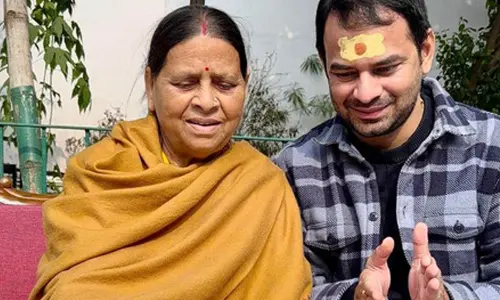Indian laws mum on digital inheritance

In a landmark ruling when it comes to postdeath digital rights, Germanys highest court has told Facebook to grant a grieving mother access to her late daughters account Citing data protection laws, Facebook had earlier refused to allow the woman access to the profile of her 15yearold daughter who was killed by an underground train in Berlin in 2012
New Delhi: In a landmark ruling when it comes to post-death digital rights, Germany's highest court has told Facebook to grant a grieving mother access to her late daughter's account. Citing data protection laws, Facebook had earlier refused to allow the woman access to the profile of her 15-year-old daughter who was killed by an underground train in Berlin in 2012.
Judges at the Federal Constitutional Court in Karlsruhe in southwest Germany ruled on July 12 that "parents can inherit the contract between their child and a social media platform in the same way they would be able to inherit physical documents such as diaries and private letters." "From an inheritance law view, there is no reason to treat digital content differently," the ruling said.
There are over two billion people on Facebook, 1.5 billion on WhatsApp, one billion on Instagram and 330 million on Twitter – out of which millions are from India. There is no denying the fact that most of us spend a sizable amount of time on digital platforms and few of us actually think what will happen to our digital possessions once we die.
The latest ruling has reignited the debate on how to make digital platforms realise the need to transfer digital assets – personal photos, family videos and friendly posts – to the family once a member is no more. "When someone dies leaving behind his email and social media accounts, the same are movable property and that being so, any heirs of the concerned person can seek right to access the same," says Pavan Duggal, one of the nation's top cyber law experts.
A "digital heir" can preserve those precious moments and gift those to future generations via tools such as an external hard disk, Cloud storage, pen drive or DVDs. The said heirs can ask the digital/social media companies to get access after giving the necessary proof. "Invariably, the service provider may not be inclined to give such access without any requisite order from the court of competent jurisdiction. This could mean getting a succession certificate from a court of competent jurisdiction which could be a time-consuming process," Duggal told IANS.
The German ruling has done justice to a grieving woman but the Indian cyber law has not even touched upon – let alone dwelt on the nuances of – the issue of one's digital life post-death. "It is pertinent to note that India does not have a dedicated law on digital inheritance, which is indeed unfortunate, given the rapid adoption of and reliance on the digital data by Indians," Duggal lamented. Facebook and WhatsApp each has over 200 million Indian users. The photo-sharing app Instagram, according to www.statista.com , has nearly 60 million users in India (as of April 2018).
According to statistician Hachem Sadikki from the University of Massachusetts, Facebook will become the world's biggest virtual graveyard by the end of this century as there will be more profiles of dead people than of living users.
The social media giants, however, have formulated their own solutions to the problem. Facebook "memorialises" your account and allows you to choose a "legacy contact". No one can log into a "memorialised" account.
The "legacy contact" can "manage" your account by adding a pinned post (like a funeral announcement), respond to new friend requests and change the profile picture and cover photo – but nothing beyond that. Google, which owns Gmail, YouTube and Picasa web albums, has an "Inactive Account Manager" feature which allows a user to nominate who has access to his or her information. If people don't log on after a while, their accounts can be deleted or shared with a designated person.
According to Twitter, "In the event of the death of a Twitter user, we can work with a person authorised to act on behalf of the estate or with a verified immediate family member of the deceased to have an account deactivated." The micro-blogging site, however, says that "we are unable to provide account access to anyone regardless of his or her relationship to the deceased."
The law, however, is silent on this not just in India but in other countries too. According to the experts, rather than allowing the accounts of digital users to lapse, it is imperative that the rights to the digital assets of the dead person be adequately recognised and granted to the relatives of the dead person. The German ruling has opened a window for other countries to take cognizance and formulate laws that cater to digital inheritance.
By: Nishant Arora














